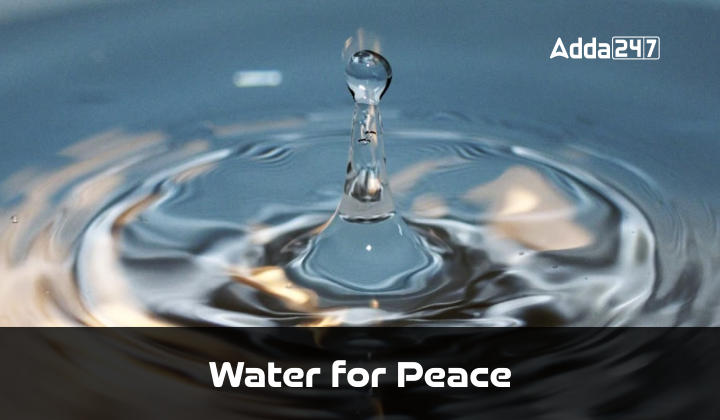Table of Contents
Every year on March 22, the globe unites under the banner of World Water Day, an initiative championed by the United Nations since 1993. This annual observance serves as a clarion call, urging stakeholders to acknowledge and act upon the critical importance of freshwater. The 2023 theme, “Water for Peace,” accentuates the vital role of water in ensuring global harmony, security, and sustainability.
The Global Water Conundrum
Gone are the days when pristine water flowed freely from wells, streams, and rivers. Today, the world grapples with a multifaceted water crisis, marked by dwindling supplies and compromised quality. Nearly 2 billion people lack access to clean water, threatening basic human needs, prosperity, and peace. Rapid urbanization, unchecked industrial growth, climate anomalies, and inefficient resource management have precipitated a scenario where water scarcity not only undermines ecosystems and food security but also poses a grave threat to global peace.
India’s Water Woes
India, with its burgeoning population and diverse geography, is emblematic of the water challenges confronting many nations. The country teeters on the brink of water stress, with projections indicating a steep decline in per capita water availability by 2050. Agriculture, the lifeline of India’s economy, guzzles a staggering 72% of the nation’s water resources, further exacerbating the crisis. 70% of India’s rural population relies on water for basic needs, with agriculture being the primary source of income.
Rainwater Harvesting
The document highlights the critical role of rainwater harvesting (RWH) in ensuring India’s water security and promoting sustainable development. Here’s a breakdown of the key points:
Why Water Conservation Matters
- Access to clean water is fundamental, not just a human right, but also a cornerstone of peace, environmental well-being, and a high quality of life.
- Sustainable agriculture, food security, and environmental health are all intricately linked to water management.
Rainwater Harvesting (RWH) as a Solution
- RWH offers a viable solution to water scarcity and drought. It involves collecting and storing rainwater for later use.
- This practice replenishes groundwater reserves, aids irrigation, and boosts overall water resilience.
Government Initiatives
- The Indian government actively promotes water conservation through various programs:
- Pradhan Mantri Krishi Sinchayee Yojana (PMKSY)
- Watershed management programs
- Mission Amrit Sarovar
- Jal Shakti Abhiyan
- These programs emphasize:
- Water conservation and RWH
- Rejuvenation of water bodies, ponds, and wetlands
- Groundwater recharge
- Watershed development
- Afforestation
Challenges and Additional Measures
- A protocol for reviving ponds and water bodies is currently lacking.
- Effective water management requires:
- Studying the condition of existing water bodies (water availability, quality, ecosystem services)
- Creating new water bodies in villages
- Considering catchment areas, storage capacity, and command areas for each water body
Further Steps for Water Security:
- Monitoring groundwater levels and water quality
- Implementing water pricing strategies
- Creating a circular water economy
- Promoting efficient irrigation techniques (micro-irrigation, automation)
- Integrated water resource management
- Installing water meters to reduce domestic water use
- Eliminating free electricity for excessive water usage
- Encouraging interdepartmental collaboration
- Fostering community awareness and participation in water conservation
- Promoting water-neutral practices in agriculture (groundwater use neutrality, land neutrality)
- Implementing water-efficient cropping patterns and integrated farming systems
- Building climate resilience and addressing population growth through integrated water management
- Reducing water losses in distribution systems
- Enabling safe wastewater reuse, desalination, and appropriate water allocation
- Encouraging collaboration between research institutions, industry, and academia for technological advancements
The Depleting Lifelines
From the parched plains of Punjab to the bustling streets of Bengaluru, India’s groundwater tables are plummeting at an alarming rate. The overexploitation of aquifers, coupled with insufficient and ill-maintained water infrastructure, has led to a scenario where many rivers and water bodies have either become seasonal or vanished altogether. The resulting scarcity not only hampers domestic and agricultural needs but also precipitates ecological imbalances.
A Call to Action
The solution to this looming crisis lies in a harmonious blend of traditional wisdom and cutting-edge technology. Prime Minister Narendra Modi’s advocacy for a balanced approach to soil health and water conservation highlights the urgent need for sustainable practices. It’s imperative that India, and the world at large, adopt integrated water resource management strategies, focusing on efficient use, recharge, and quality enhancement to secure a future where water acts not as a source of conflict but as a conduit for peace and prosperity.
Conclusion: Fostering Peace through Water Stewardship
As World Water Day beckons us to reflect on the indispensability of this precious resource, it’s clear that safeguarding water is tantamount to preserving peace. By embracing sustainable practices, fostering technological innovation, and nurturing a collective sense of stewardship, we can ensure that water remains a symbol of life, harmony, and progress for generations to come. By adopting these comprehensive water management strategies, India can achieve water security, support a peaceful world, and fulfill the theme of World Water Day 2024. Rainwater harvesting serves as a cornerstone for this critical endeavor.



 TSPSC Group 1 Question Paper 2024, Downl...
TSPSC Group 1 Question Paper 2024, Downl...
 TSPSC Group 1 Answer key 2024 Out, Downl...
TSPSC Group 1 Answer key 2024 Out, Downl...
 UPSC Prelims 2024 Question Paper, Downlo...
UPSC Prelims 2024 Question Paper, Downlo...
